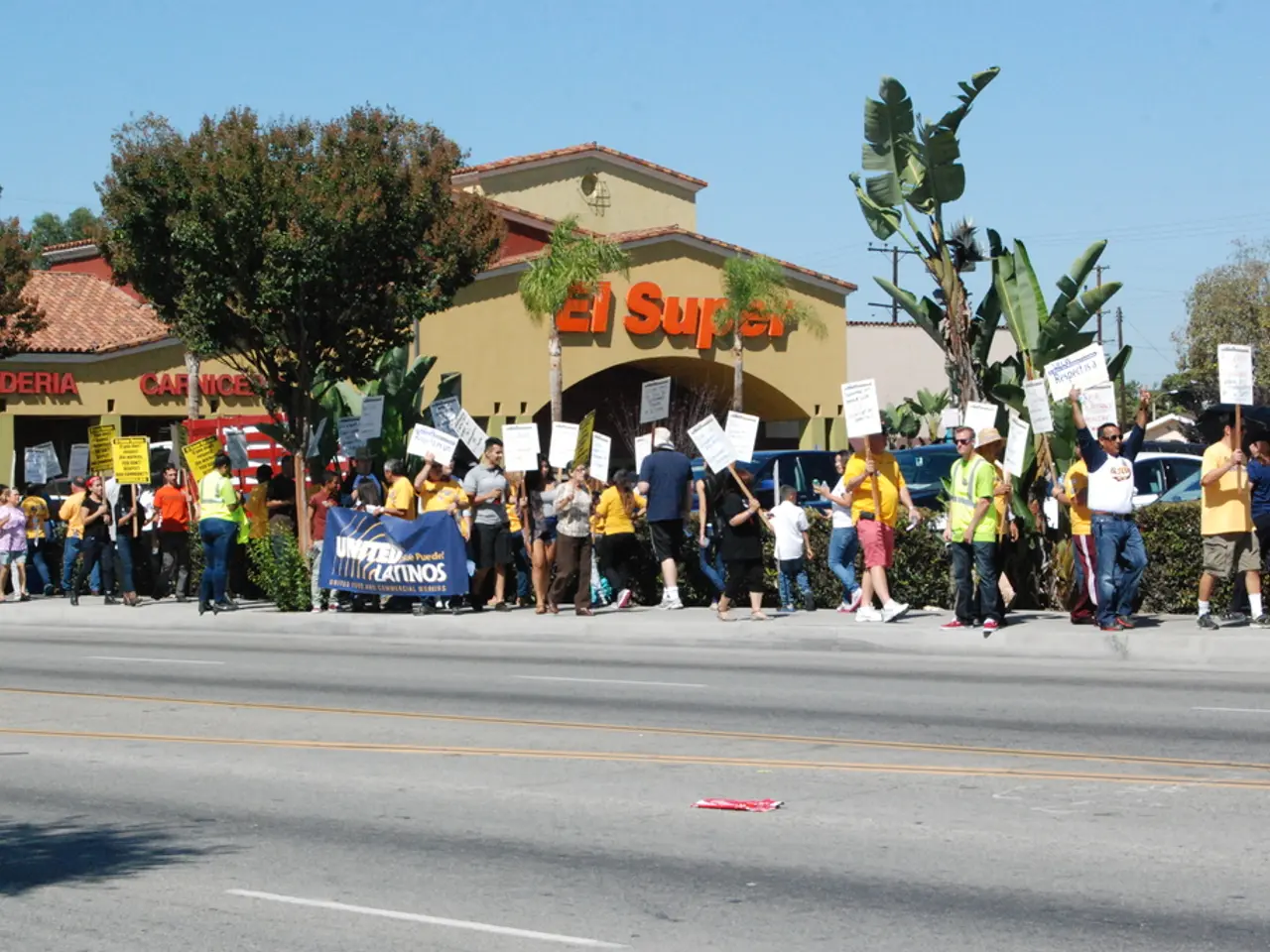SPD Facing Potential Relegation Battle
Headline: Local Elections in North Rhine-Westphalia: SPD and AfD Square Off Amidst Challenges and Institutional Obstacles
On September 14, 2025, local elections will take place in North Rhine-Westphalia (NRW), with voters electing representatives at city, municipality, and district levels. In this regional context, the Social Democratic Party (SPD) and the Alternative for Germany (AfD) are significant actors with contrasting political fortunes and challenges.
Historically, the SPD has been a major political force in NRW. However, recent federal election dynamics show a mixed environment. Nationally, the SPD’s share in the 2025 federal election was overshadowed by a strong performance of the conservative CDU/CSU and a doubling of AfD’s vote share to 20.8%, marking the AfD’s best nationwide result and second place. While there is no direct recent polling data for SPD’s local election prospects in NRW, the party faces competition from leftist parties and challenges in voter retention, as seen in the federal election where The Left gained partly at SPD expense.
The AfD is experiencing significant growth in electoral support, evidenced by its federal election surge and local ambitions. However, the AfD confronts institutional resistance in NRW’s local elections. Germany’s domestic intelligence agency is actively targeting AfD candidates, accusing them of anti-constitutional tendencies and right-wing extremist sympathies. This has led to some AfD candidates being banned from standing in various towns within NRW while others, like Marvin Weber in Paderborn, have faced smear campaigns but still secured candidacy support from most local parties except the Greens. The AfD itself contends that intelligence actions are politically motivated attempts to silence opposition.
The upcoming elections create a politically charged atmosphere in NRW, with SPD aiming to maintain influence while AfD attempts to capitalize on rising support amid resistance from state institutions. Political scientist Norbert Kersting from the University of Münster considers it unlikely that an AfD politician could move into a larger town hall in NRW due to the existing firewall of parties that rigorously distance themselves from the AfD.
The SPD is fielding down-to-earth and pragmatic candidates for mayor in various cities, such as Frank Dudda in Herne, Sören Link in Duisburg, Andrea Henze in Gelsenkirchen, Ralf Paul Bittner in Arnsberg, and Nicole Reschke in Freudenberg. Barbel Bas, the party leader from Duisburg, won her own constituency in February and is considered a beacon of hope for the battered SPD in Gelsenkirchen.
Around 13.7 million people are eligible to vote statewide in the elections. These elections are not just about hundreds of mayors and councilors, but also a major political mood test since the federal election in February. According to a Forsa poll from early July, the CDU, SPD, and Greens are facing losses in the local elections, while AfD and Left are gaining.
NRW is the most populous federal state and serves as a kind of blueprint for the republic, encompassing major cities, rural areas, structural change, over-indebted municipalities, and migration. Dirk Wiese, the manager of the Bundestag faction, believes the SPD is strongly present and deeply rooted in NRW. NRW is self-confident and independent, according to Dirk Wiese.
Barbel Bas, the party leader from Duisburg, is a beacon of hope for the battered SPD in Gelsenkirchen. She is considered the prototype of a social democrat, with a working-class background and interests in football, crime novels, and local beer. Lars Klingbeil, her co-party leader, has also been campaigning for the NRW local elections. Dirk Wiese does not believe the performance of the Merz coalition in Berlin will have a significant impact on the NRW local elections.
The AfD is criticized for not being interested in the challenges of workers and is compared to a wolf in sheep's clothing. Despite these challenges, the AfD is determined to make its mark in the local elections, aiming to capitalize on its growing support base amid institutional obstacles. The outcome of these elections will be closely watched as a barometer of the political mood in NRW and beyond.
- The Social Democratic Party (SPD) has historically been a significant political force in North Rhine-Westphalia (NRW), but they face competition from leftist parties and challenges in voter retention in the upcoming local elections, as seen in the federal election where The Left gained partly at the SPD's expense.
- The Alternative for Germany (AfD) is experiencing substantial growth in electoral support amidst institutional resistance in NRW's local elections, with Germany's domestic intelligence agency targeting AfD candidates due to accusations of anti-constitutional tendencies and right-wing extremist sympathies.







